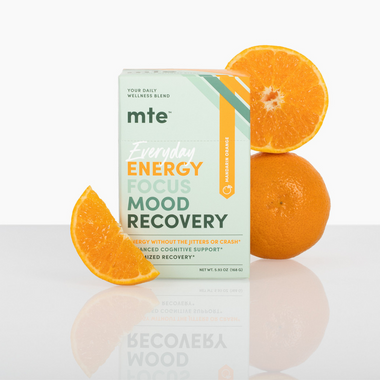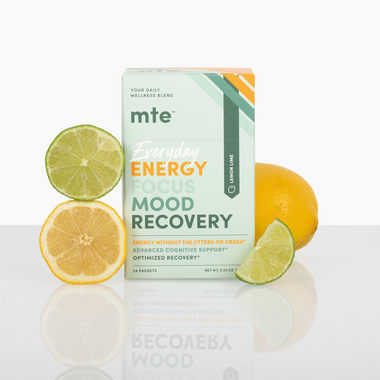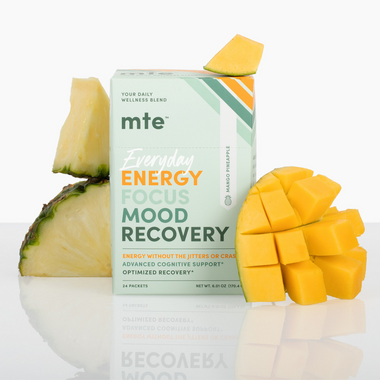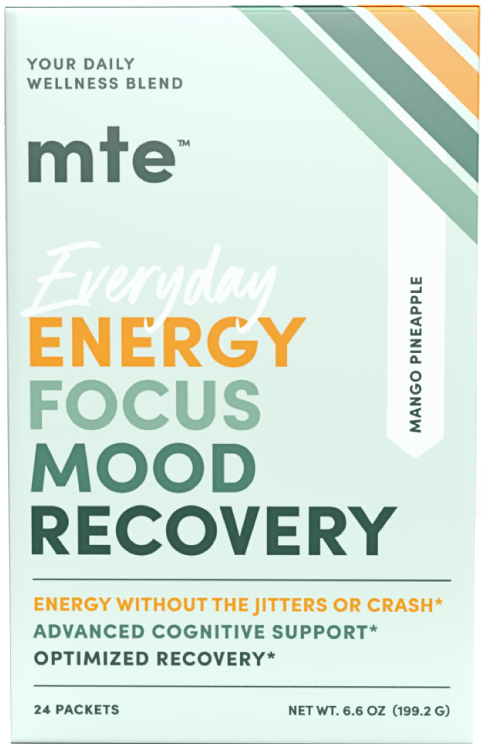
Why Am I Always Tired? 3 Not-So-Obvious Causes of Chronic Fatigue
Everybody’s tired, there’s no question about that. Why do you think the energy drink market is such a huge thing? And there’s advice out there for everything – Feeling tired? Try exercising. Can’t wake up? Chug a litre of water first thing in the morning and try not to puke. Can’t make it through the afternoon? Slam a couple espressos. Change your diet. Change your point of view. Meditate or whatever. It’s endless.
So what if you’ve tried everything and literally nothing has touched your tired? Is it all your fault? It’s easy to feel that way when you see the people around you having a much more pleasant time getting through the day than you do. But it’s not! Chronic fatigue is a real thing. In fact, it can even be a whole illness.
We’re not here to diagnose anyone with anything, but there are a few elusive culprits to chronic fatigue that will render any valuable lifestyle advice useless until they’re resolved. Let’s look at three invisible reasons why you always feel tired despite your best lifestyle efforts:
1. Hormonal Imbalances
Your body and brain function on a complex network of signaling, distribution and delivery. Think of it as a subway system: one car breaks down, everything else is messed up; things are late, missing, or aren’t even able to get where they’re going. Just like a subway backup causes an infrastructural breakdown, so do hormone imbalances:
- Thyroid problems: Your thyroid regulates your metabolism. Hypothyroidism, which is an underactive thyroid, can cause fatigue as the body's metabolic rate slows down.
- Adrenal imbalance: Adrenal glands produce a fight-or-flight hormone essential for energy levels. Too little of this chemical can hamper your body’s ability to produce energy, and too much, especially chronically, can overstimulate everything all the time, also resulting in fatigue.
- Sex hormone imbalance: Deficiencies, excess or fluctuations in hormones involved in the reproductive system can affect energy levels, especially in women.
2. Nutrient Deficiencies
The old saying “you are what you eat” sort of applies here, because your diet has a huge impact on your energy levels. For instance, we know fatty diets lead to fatigue and sugary diets lead to metabolic issues. But if you eat healthy and still feel tired, it might be because you’re missing key nutrients your body needs to produce energy:
- Iron deficiency: Iron is crucial for oxygen transport in the blood. Iron deficiency can lead to fatigue and other symptoms like anemia.
- Vitamin D deficiency: Vitamin D plays a role in energy production and immune function. Low vitamin D levels can cause fatigue and muscle weakness.
- B-vitamin deficiencies: B vitamins are essential for energy metabolism. Deficiencies in vitamins B12, B6, and folic acid can cause fatigue and other neurological symptoms.
3. Sleep Disorders
The importance of sleep health cannot be overstated – and it’s not just about feeling tired. Chronic sleep disturbances wreak havoc on almost every system in your body, and definitely on the neurochemical signaling in your brain. Did you know it only takes a week of no sleep to do long-term irrevocable damage to your brain and organs? So yeah – sleep is kind of a big deal.
Sleep deprivation and/or poor sleep quality is associated with fatigue, reduced cognition, impaired ability to learn and memorize, inability to regulate emotions – the list is long. There are many types of adverse sleep differences, but some are sneakier than others. Have insomnia? Pretty sure you know about it. Have a parasomnia? You very well may have no idea:
- Parasomnias: These are most often caused by neurochemical signals failing to complete their cycle while you’re sleeping. Parasomnias include sleep walking, sleep talking and sleep-related eating.
- Sleep-Related Movement Disorders: These are also associated with insufficient/defective neurochemical communication, and include maladies like periodic limb movement, bruxism and restless leg syndrome.
- Sleep Apnea: Did you know sleep apnea can be sneaky? This condition involves pauses in breathing during sleep, disrupting sleep quality and oxygen levels in the blood. They can be super-short interruptions but they can happen up to hundreds of times per night. Many people only experience the subtle signs like daytime sleepiness, irritability, mood swings, and an inability to focus. It’s estimated over 80% of people who have sleep apnea have no idea.
Now, this list is in no way complete. There are psychological conditions, food sensitivities, medications, autoimmune problems, and environmental factors that are also hard to pin down. If you’re feeling messed up, like, literally all the time and can’t seem to learn a solitary thing about why, stop struggling for a sec and go set up an appointment with your PCP. That’s what they’re for.
A Natural Energy Powder Can Give You a Leg Up on the Daily Lag
And to support your journey to feeling better – hopefully to feeling great! – a wellness companion that promotes your body’s innate energy production and stress management functions definitely won’t hurt. MTE is a first-of-its-kind alternative to caffeinated energy drink powders. It’ll help you feel focused, awake and in a good mood on the short-term, sure. But the big benefits come in the long-term.
With regular use, our daily energy greens support energy, focus, mood, cognition, sleep, stress resilience, immunity, and inflammation. When you’re not feeling good, any healthy habit you add to your routine can help make your journey back to wellness easier. Let MTE’s proprietary blend of bioactive adaptogens, nootropics and superfoods support your fight against chronic fatigue.
Want to know more? Visit our online shop and get to know your new best friend for getting back to the happy, energetic self you know you are on the inside. Let’s go!






